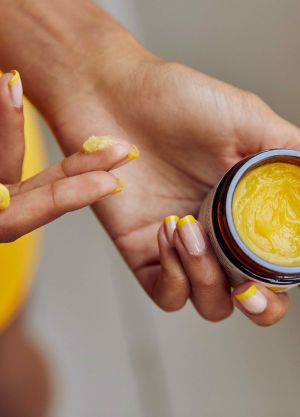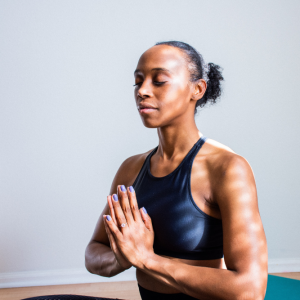
So if you're one of the many people dealing with chronic pain, we’re here to help. We spoke to Dr. Daniela Tonucci about ways to soothe pain at home – something that she’s an expert in, as one of the UK’s leading chronic pain specialists and the lead prescriber at the Wellford Clinic. She told us: “Rather than being reliant on one course of treatment, such as medication alone, we encourage patients to opt for a more holistic approach to pain management.
“You might find one treatment reduces pain by 20%, and when you combine that with several other treatments that do the same, you have a range of ways to improve your quality of life, rather than pinning all your hopes on one.”
Below, we reveal Dr. Tonucci’s top pain-soothing tips for relief at home. Try them all or combine just a few to find a pain management plan that works just for you…

1. Target pain with heat therapy
One of the quickest, easiest and most effective forms of pain management is heat therapy. “You can apply heat packs, hot water bottles or even use a TENS machine on areas of pain to ease discomfort, and then do some light stretching,” explains Dr. Tonucci. “A hot bath or hot shower before bed is also helpful – especially for lower back pain – as it will help to soothe inflammation so you can sleep better at night.”

2. Ease inflammation with cold therapy
Icing can also work wonders at dialling down pain. There’s a reason people tell you to press frozen peas on swollen joints: this narrows the blood vessels, resulting in reduced blood flow (and, therefore, inflammation) in the area. As part of your pain management routine, “alternate heat therapy with cold therapy. Sometimes people with chronic pain or acute flare-ups find icing is most effective, but you can mix and match the two techniques to find what works for you.”
For best results when using cold therapy, try applying ice to the painful area, but don’t put it directly onto your skin; wrap it up in a flannel or towel first.

3. Try to reduce stress levels
“Stress increases pain, so we use a lot of psychological techniques at Wellford that are designed to minimise tension and improve your quality of life,” explains Dr. Tonucci. “Some of these you can try at home, such as guided meditations and cognitive behavioural therapy on the Curable app, yoga and mindfulness.”


4. Give yourself an at-home massage
“A hands-on manipulation massage can be effective in soothing pain,” Dr. Tonucci tells us. When you massage an ache, you stimulate the nerve fibres and disturb pain signals sent to the brain. “You can use a tennis ball, a squash ball or a massage gun to give yourself a massage at home,” she adds, “but you can also work your fingertips into knots with a soothing massage balm.”
Try this with the CBD Muscle Balm; a melting marvel widely praised for enhancing massages, with a tingle of eucalyptus for a cooling effect. It’s specially formulated to stay in one place on your skin, so you can even work it into tight muscles before sweating your way through cardio. It will not budge. Speaking of workouts…

5. Engage in regular exercise
“Many patients are scared to do exercise in case it makes their pain worse,” says Dr. Tonucci, “but inflammatory conditions can actually respond really well to regular workouts. We often recommend patients have a look at a YouTube channel called Yoga with Adrienne, because the classes are all online and really simple for beginners. There are so many different types of exercises there, including Chair Yoga and Wheelchair Yoga for patients who are non-mobile. These types of exercise also work really nicely with your psychology techniques, like mindfulness.”
But, what about higher impact workouts? “We often recommend running, swimming (especially for back pain or those needing to build up their strength) and cycling, as well as physical therapy,” says Dr. Tonucci. "If there was a particular exercise you enjoyed before you started experiencing pain, we would also encourage you to return to that.”
